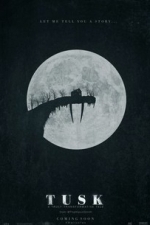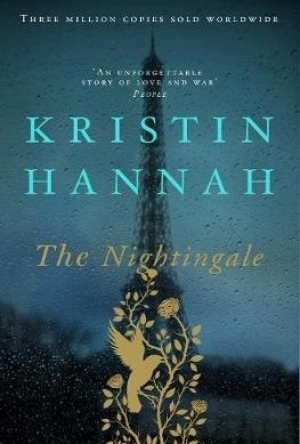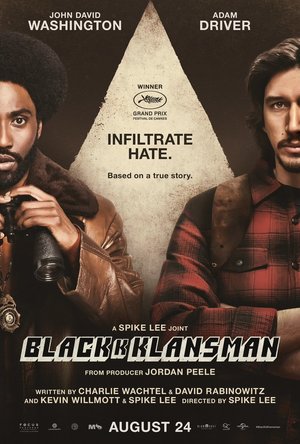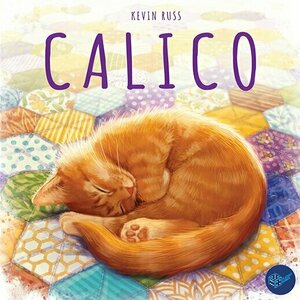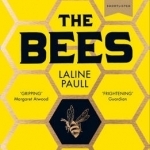Gareth von Kallenbach (980 KP) rated Tusk (2014) in Movies
Jun 19, 2019
While Smith was reportedly working to get funding for “Clerks 3”, an idea was presented to him during his Smodcast about a guy in rural Canada who is offering free room and board to anybody who would live with him on the condition that they wear a walrus costume from time to time. Buoyed by his followers on Twitter, Smith decided to make a horror film based on the situation even after learning that the incident in question was the result of a prank by a comedian.
In his new film Tusk, we are introduced to a successful podcaster named Wallace (Justin Long), who along with his costar Teddy (Haley Joel Osment), run a show called the Not See Party, whose name leads to several double takes and comical and uncomfortable situations down the line. Wallace’s girlfriend Ally (Genesis Rodriguez) wishes to accompany Wallace to his trip up to Canada in order to interview someone for a show.
Since Teddy is not a flyer, Wallace travels to locations to interview people and then in turn tells the stories to Teddy so the two can comment about them on air. Ally longs for the Wallace of old who was a struggling comedian as she believes that the successful Wallace is not that fun to be around as he no longer makes her a priority in life. Wallace admits as much when he discloses a series of infidelities to Teddy and dismisses them as nothing more than clearing of the head while traveling or before doing a live show for an audience.
Upon arriving in Manitoba, Wallace learns that his intended interview has befallen tragedy and faced without a topic for his next show, Wallace is intrigued by a flyer from a man offering room and board as well as plenty of stories.
Wallace makes contact with the individual and travels two hours into rural Manitoba at night to meet the man at his expansive estate. Upon meeting Howard Howe (Michael Parks), Wallace is captivated by the elderly wheelchair-bound gentleman and his tales of life at sea including meeting Ernest Hemingway during the war. As Wallace sat spellbound by the tales Howard is telling him, he soon falls unconscious as a result of being drugged by his host. Things take a very dark turn the following morning when Howard learns that he has lost a leg of which Howard proclaims was the tragic result of a spider bite. Things become a living nightmare as Wallace quickly learns just how devious and diabolical Michael’s plans are for him and trapped in a remote area his humanity and faith are slowly stripped away by the situation he finds himself in.
Teddy and Ally travel to Manitoba due to a frantic call Wallace makes and not finding much assistance from the local authorities, turn to quirky and eccentric former homicide detective Guy LaPointe (Johnny Depp), who fears that Wallace has become the victim of an elusive killer whom LaPointe has been trying to find for years.
What follows is a dark, disturbing, and utterly captivating thriller in a race against time with the very essence and humanity of Wallace hanging in the balance.
While Smith inserts his trademark humor into the film, this is very much a psychological thriller and not a comedy. Depp does a fantastic job and is almost unrecognizable in his role as a homicide detective who is scheduled to appear in a subsequent film currently shooting. While it seemed a bit of a stretch that Ally would want be involved with Wallace, there was nonetheless a good bit of chemistry between them even though the majority of their scenes are shown via flashback.
Long and Parks propel the story as it is pretty much about the dramatic struggle between the two of them. Parks is captivating and creepy while the brash Wallace gets a lesson in humanity and what truly matters in life. While some will no doubt find the subject matter highly disturbing and may be quick to dismiss the film, this is one of the more clever and enjoyable thrillers in recent years and proves that Smith is a filmmaker capable of doing things other than his trademark comedies and should be encouraged to continue to broaden his horizons.
As it stands the film should delight fans of Smith but also allows him to expand his audience into new areas as this truly is one of the more memorable and entertaining films of the year.
http://sknr.net/2014/09/19/tusk/
Kristy H (1252 KP) rated The Nightingale in Books
Aug 12, 2021
This was an excellent and informational portrayal of World War II. It's haunting and heartbreaking and hopeful all together. Hannah tells the story of the War through our two sisters--looking at how they approach the war, along with their father. Vianne is the practical older sister, who worries for her safety and that of her daughter. Meanwhile, Isabelle has felt betrayed most of her life after the death of their mother and perceived abandonment by her older sister and father. This feeling spurs her to join the Resistance. Following their different paths allows us to see many varied sides of this awful and terrifying War. As you form attachments to the characters, the snatching of Jewish families and children and the concentration camps become even more stark and brutal--it's horrifying.
While I cannot really know what happened during this time period, this book seemed realistic and authentic to me. It made me cry. It's sad and yet somehow sweet at times. It's a vivid look at loss and love--for sisters, family, and your country.
I read this book as part of my new reading project--choosing books off my shelves based on their Goodreads rankings. This is my first book of the project, forcing me out of my comfort zone and to try books in genres I don't usually read!

Anatomy Lectures Thorax and Abdomen
Medical and Education
App
Learn human anatomy with this app – our series of lectures on the Thorax and Abdomen. The...
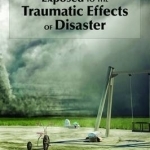
Care of Children Exposed to the Traumatic Effects of Disaster
Jon A. Shaw, Zelde Espinel and James M. Shultz
Book
Care of Children Exposed to the Traumatic Effects of Disaster addresses the effects of disaster on...

JKZ Series2
Health & Fitness
App
Dr Jon Kabat-Zinn’s Series 2 – NOW available as an app! The meditations in the Series 2 app are...
Gareth von Kallenbach (980 KP) rated BlacKkKlansman (2018) in Movies
Jul 8, 2019
The film is very creative in the way that it presents history and allows the audience ride along with the action, suspense, and anxiety experience by Washington and Driver’s characters. The tone of the film, at times, is lighthearted in its approach but quickly draws you back in when faced with the reality that David Duke, and people like him walk among us dressing up their racism with non-threatening slogans, professional attire, and a clean-cut package.
The story displayed is a reminder that racism in America has a long history and is not isolated geographically to the south nor limited to Charlottesville or Charleston. The attitudes and actions committed by those who agree with the stances of white supremacy and white supremacist organizations have had a drastic impact on the development of American society. It has shaped and misshapen our attitudes towards one another. It continues to affect us today as we all bear witness to unbridled racism or the downplaying of racism with terms like “political correctness.” This film is timely in its approach and offers audiences a more full and expansive view of what combatting racism and racist attitudes and actions looks like.
Blackkklansman is a film that many have waited for when first hearing about the story of Ron Stallworth and they will not be disappointed with what they witness on screen. Sadly, the people who desperately need to see this movie may pass on it because they are uncomfortable with the subject matter and the reality that they themselves may be complicit in the continuance of racism and white supremacy. This film feels like a conversation being conducted directly between the director and audience. There are subtleties that allow the audience to think about the meaning and even parallel between the early 1970s and the current political environment, as well as, moments where there is no hiding of the message, no metaphor, no allegory. The filmmakers make it clear for those watching that many of us need to wake up almost as blatantly as Spike Lee promotes one of his earlier films, School Daze.
The only problem I found with the film was that I was left wanting more discussion. I wanted to see more of what Ron Stallworth dealt with as the only black detective in his department. If anything, this shows a real strength in the film by leaving audiences emotionally connected with the horrors that he faced, as well as, the way that those around him come to grips with the reality of the hatred and racial violence that had overlooked before because it did not have a direct effect on them. Blackkklansman is a film that will have audiences reflecting long after the credits have rolled. Hopefully the themes, metaphors, and overall message will help foster overdue and well-needed conversations about race, racism, prejudice, and violence. This film takes audiences out of their comfort zones and forces them to face some of the dark corners of America for two hours. Within that two hours, hopefully the people who don’t recognize racism and bigotry get a glimpse of the true horror and fear that marginalized communities feel on a daily basis so that they themselves can be agents of change and fight against racism.
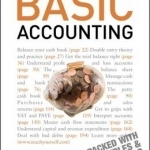
Basic Accounting: Teach Yourself: The Step-by-Step Course in Elementary Accountancy
Book
Is this the right book for me? Basic Accounting is a complete, step-by-step course in elementary...
Purple Phoenix Games (2266 KP) rated Calico in Tabletop Games
Oct 3, 2019
Calico is a game of tile drafting, tile placement, pattern recognition, with a hint of point salad. Now, not everything you do will score you points, but there are many ways to score. This game plays equally well solo as it does with a group, but how does one play it?
DISCLAIMER: We were provided a prototype copy of this game for the purposes of this review. As this is a preview copy of the game, I do not know if the final rules or components will be similar or different to what we were provided. -T
To setup, each player chooses a quilt board that has a different colored stitching printed on it. This is the player’s color. Each player will receive their goal tiles of matching color and choose three of these to place on their boards in the starting positions (the rule book also details a recommended first game placement and tile choice). These tiles show the requirements to score them and how many points each scoring tile is worth. Three cat placards are chosen that will be visiting your quilt sections and who score differently from each other. Place the corresponding cat tokens nearby and randomly assign two black-and-white patter tokens to each cat under their placard. Place the cute rainbow tile and matching button tokens nearby. Shuffle the quilt patch tiles and place them in a pile or stack at the middle of the table. From this collection deal two per player, and draw and reveal three more face up to be the offer row. You are now ready to play.
On your turn you will place a tile from your hand, check for scoring, and then draw a new patch tile to your hand. You may place either of your tiles anywhere on your board in any orientation you like. Complete freedom! In order to score points, however, you will want to be strategic in where tiles are placed. You see, the scoring tiles you placed at setup will dictate how they score. Some tiles score when you have two sets of three similar tiles. Tiles are similar either by matching their patterns or their tile colors. Some tiles score when you have placed NO matches at all. Each of these tiles will score points based on whether you satisfied its requirements by color, by shape, or both. Example: a scoring tile says AAA-BBB. This means it wants two sets of three matching patch tiles surrounding it – and ONLY the tiles surrounding it. It also has printed scores of 8 and 13. This means that if you have two sets of tiles that match by color only (but not pattern) you will score 8 points. Should you match three tiles’ colors but also match three tiles’ patterns you will score 13 points.
It is important to note here that the six tiles surrounding the score tile do not have to match exactly. So you do not have to have three yellow tiles with ivy pattern. You need to have three yellow tiles (if you chose yellow for this example) and three tiles that have the ivy pattern. Your other set can be three blue tiles with three stripes patterns. As long as you have these sets from the six surrounding tiles you will score what is on that tile.
The cats come into play when you satisfy their scoring requirement printed on their placard. So Thimble, the actual Calico cat, will visit a portion of your quilt when you have placed three tiles adjacent to each other with their preferred pattern. In the example shown Thimble likes ferns and polka dots. So whenever you have three or more connecting tiles that share one of these patterns you will grab a Thimble token and place it on one of the tiles on your board. Each cat will have different scoring requirements and patterns of which to be aware.
Similarly, but with colors, are the rainbow scoring button tokens. Each patch tile contains a color and a pattern. Cats are attracted to patterns, whereas buttons are sewn onto similar colored tiles. Match up three tiles of the same color and you can sew a button onto your quilt. Buttons are worth 3 points and they just look great on your quilt.
Play continues in this fashion until all quilts are completed. Players then tally up their scores and determine the winner of Calico!
Components. Again, we were provided a prototype of this game, so I will not comment too much on the components as they will probably change from now until production. But, I am able to comment on the art and visual aspects. The art is by Beth Sobel. Do I need to say more at this point? Yes? Ok. So the illustrations of the cats are wonderful. The sleepy little space heaters are depicted so well and they really are cute (I mean, if you’re into cats). The patterns and colors on the quilt tiles and buttons are absolutely fantastic. Just seeing it on the table makes me excited to play it, and for a game about quilts and cats that is REALLY saying something. The art and visual appeal of this game is truly off the charts.
I am not colorblind, but I do appreciate when designers consider options for gamers who are. In Calico, though you are playing for and concentrating on patterns and colors, the tiles are also printed with icons that match the shapes of the buttons to be claimed. As you can see in our photos, yellow tiles have a crescent moon, which match the crescent moon button you claim. The purple tiles have a ghost? Onion? Jawless skull? Blueberry? Whatever it is, it also matched the token you claim for the rainbow bonus points. I like this. I like this a lot.
So do we like playing it? I have played several games of this solo as well as with a group, and it truly is fantastic. It’s one of those games that you can go nutty trying to figure out the optimal play, or you can just play it casually to come up with the prettiest end result. Granted, you probably will not win much, but golly look at your quilt! You can play Calico with ANY gamer type: beginner, casual, hard core, and industry personalities. And I believe that every one who plays this will have a great time and salivate for more plays (cats salivate, right? Or is that a dog-only thing?). I am very excited to see what Flatout Games has in store for this one on Kickstarter, and I would be happy to play with anyone who asks, or as part of anyone’s gaming event.
Established British playwright Laline Paull’s debut novel, The Bees, represents just that. I may just be reading too much into the buzz, but the Oxford alumni who has had two plays performed at the Royal National Theatre must have some of the country in her subconscious as she writes.
The novel follows the life of worker honeybee Flora 717, born of the lowest class of bee society. In a world where mutation and difference is destroyed on sight, the larger-than-average Flora is saved from destruction by opportunities born from austerity in the hive, where ‘the season is deformed by rain, and the flowers shun’ the bees, so they need every available worker.
The life of the honeybee turns out to be symmetrical of Plato’s Republic and his utopia, where children are told what role they will have in life based on their ‘blood’. Plato divided the bronze craftsman, silver guardians and golden philosophers, and Paull divides bees in their ‘kin’ groups, named after flowers, and are priestesses to police, foragers who can fly outside the hive to the sanitation Flora, the lowest, and are given ‘no flower’. ‘A Flora may not make Wax for she is unclean, nor Propolis for she is clumsy, nor ever may she forage for she has no taste, but only may she serve her hive by cleaning,’ but the talented Flora 717 wants more.
Throughout the novel, Paull shows the same attachment to characters as George R R Martin, author of the Game of Thrones novels; the frequent loss deepens the heartbreak Flora must overcome as she fights to defy her set fate and claim the most illegal of desires. No reader will escape the anguish that concludes each new adventure.
The hive is akin to a cult, with leaders keeping their inferiors in check, with fear, intoxication and just a little hypnosis. The cult is complete with its own religion, mantra and even a parody of the Lord’s Prayer, ‘Hallowed be thy womb’, arguably my favourite part. This made the story really exciting, being on the ‘outside looking in’ as the reader, I wanted to encourage Flora to defy, but felt the fear of going against her sisters (this isn’t a cult bond word, they are all blood sisters, for only ‘the queen may breed’).
Paull’s scriptwriting has nurtured the ability to make the reader visualise her words exactly how she writes them, and that is clear within The Bees. I can see the wax panels that Flora 717 scuttles across as she travels around her hive, I can imagine the wax cribs in the nursery and know the deadly yellow and fine lines of the enemy wasp. In the ‘glass cage’ when Flora discovers the Venus Fly Trap, Paull never mentions the plant by name, but speaks only of their ‘red mouths’ with ‘white filaments’ on each ‘inner lip’, they ‘bore no pollen, the only nectar a viscous slick at the join of the petals’. But for all her beautiful imagery seeping off the pages, The Bees was not a book I have felt submerged in.
Full review on <a href="http://www.natari-himi.com">natari-himi.com</a>;
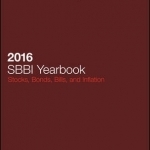
2016 Stocks, Bonds, Bills, and Inflation (SBBI) Yearbook
Roger Ibbotson, Roger J. Grabowski, James P. Harrington and Carla Nunes
Book
The latest, most complete data for more informed investment decisions The 2016 Stocks, Bonds, Bills,...
